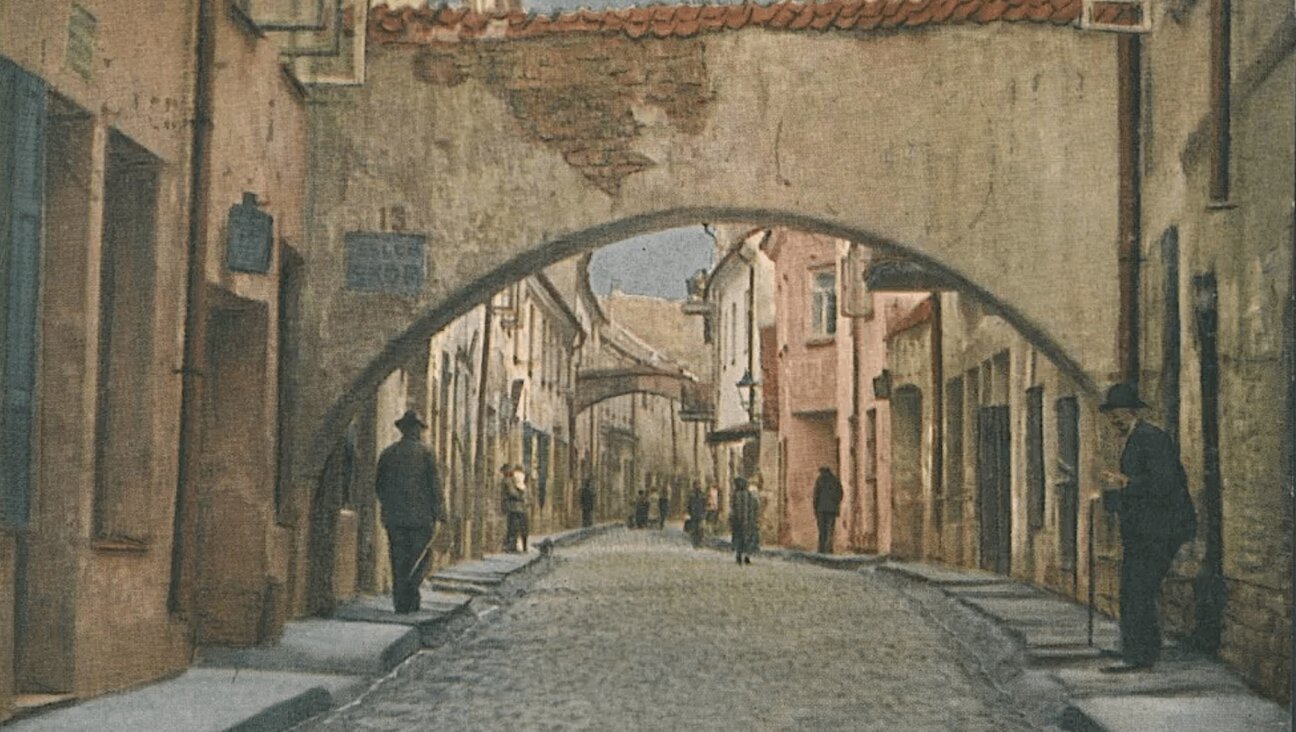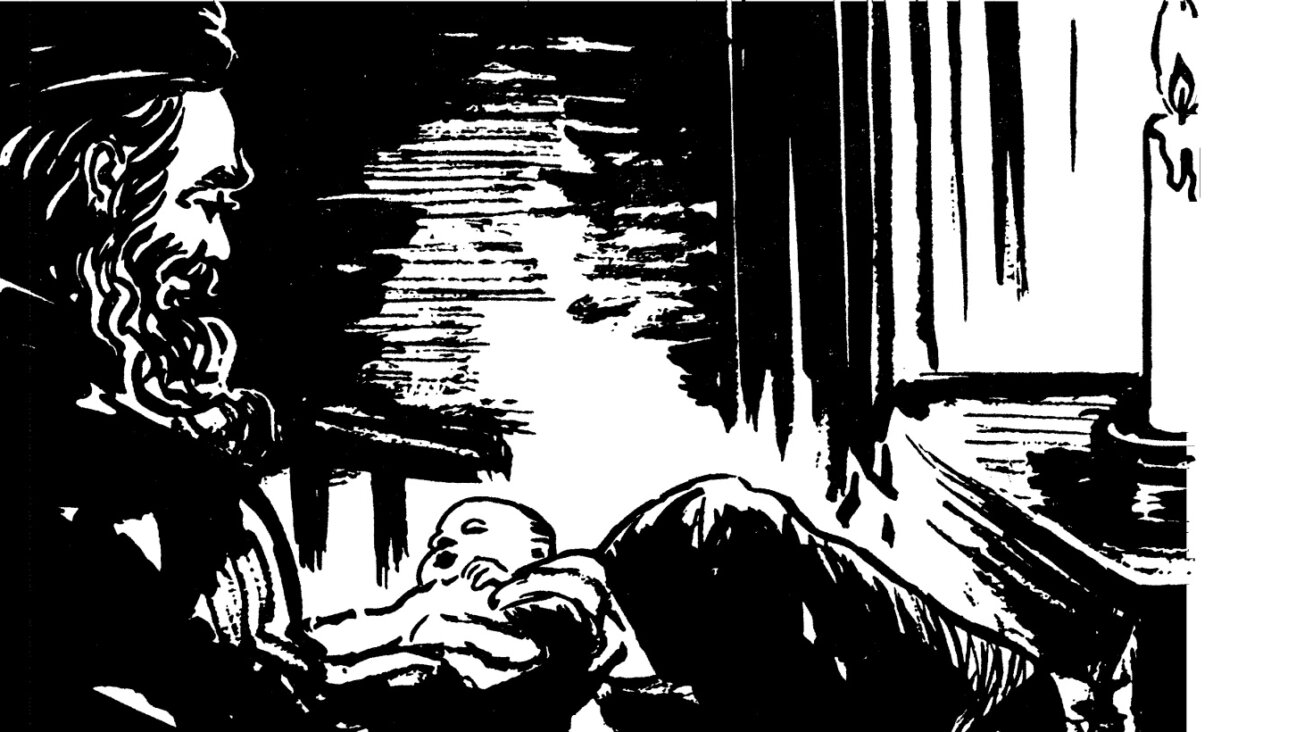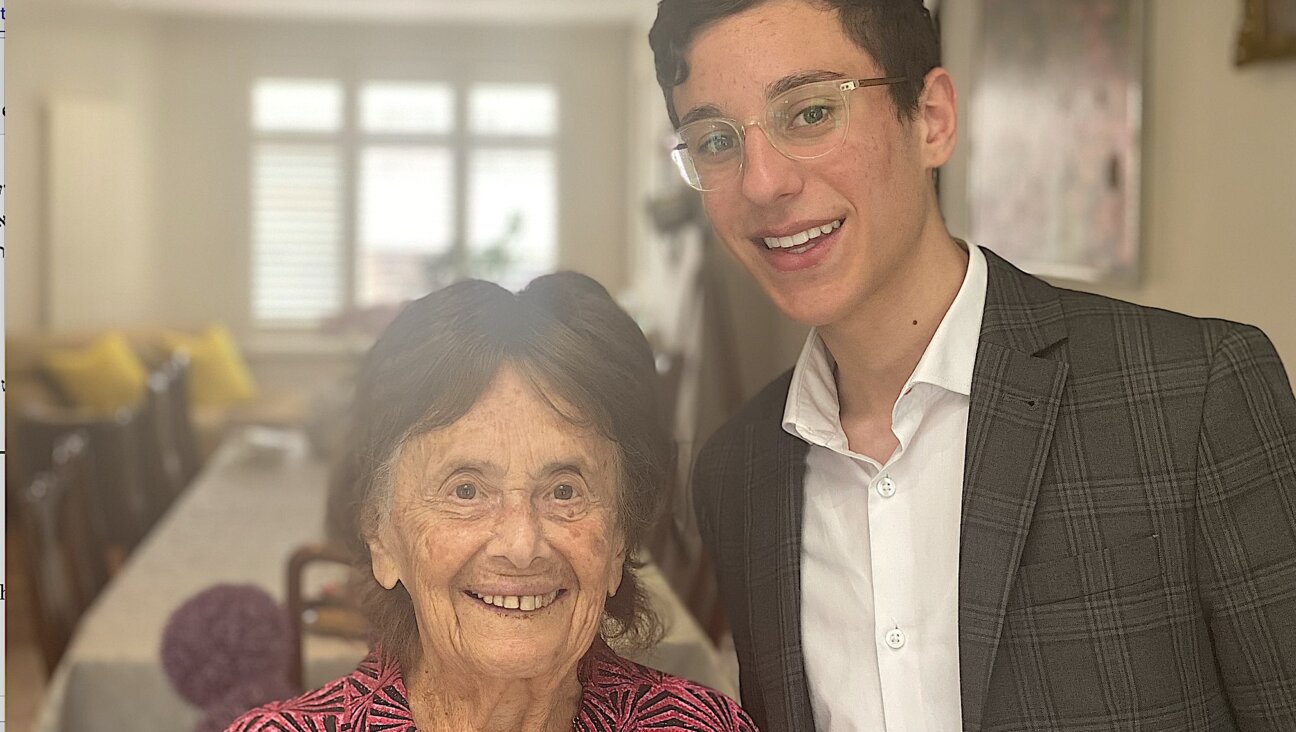The Night Golda Meir Slept In My Bed
Norma Salz shares the story behind her favorite heirloom: a handwritten letter in Yiddish from Golda Meir in 1931.

Graphic by Angelie Zaslavsky
In the 1930’s, Golda Meir, then known as Golda Meyerson, worked on a mission for Pioneer Women in Israel in the US, collecting funds for women and children in Palestine.
In 1931, the organization held its annual fundraising dinner in Buffalo, New York and Golda came to take part. Although she was an honored guest, the organization felt that it would have been a waste of money for her to go to a hotel (every penny counted!) so she stayed at our house and actually slept in my bed!

Golda Meir (center) flanked by Norma Salz’s parents, Rosa and Morris Hoffman, 1931 Image by Norma Salz
In the morning, I asked her: “What are they singing in Israel now?” I belonged to the Poale Zion youth movement and we sang and danced all the time.
She smiled and sang the song, “Shuru Hebitu U-re’u”. She then explained that it was written to remember the pogroms of 1928 when the Arabs burnt the fields that were planted by the halutsim, the pioneers. The song says that someday, instead of red fires, we’ll see green fields there. I still remember the lyrics.
Afterwards, I asked Golda to write something in my new autograph book and she wrote me this message in Yiddish:

Image by Norma Salz
Here is the translation of her letter:
My dear Nekhome,
May you grow strong and healthy and in time, join the army of young people working to build a home for your people and through this make our world fairer and better. Go on this path so that you too will merit to take part in this cause.
Golda Meyerson
5/12/31
The letter hangs on my wall till this day, along with the photograph of my parents, Rose and Morris Hoffman, and Golda herself.





















